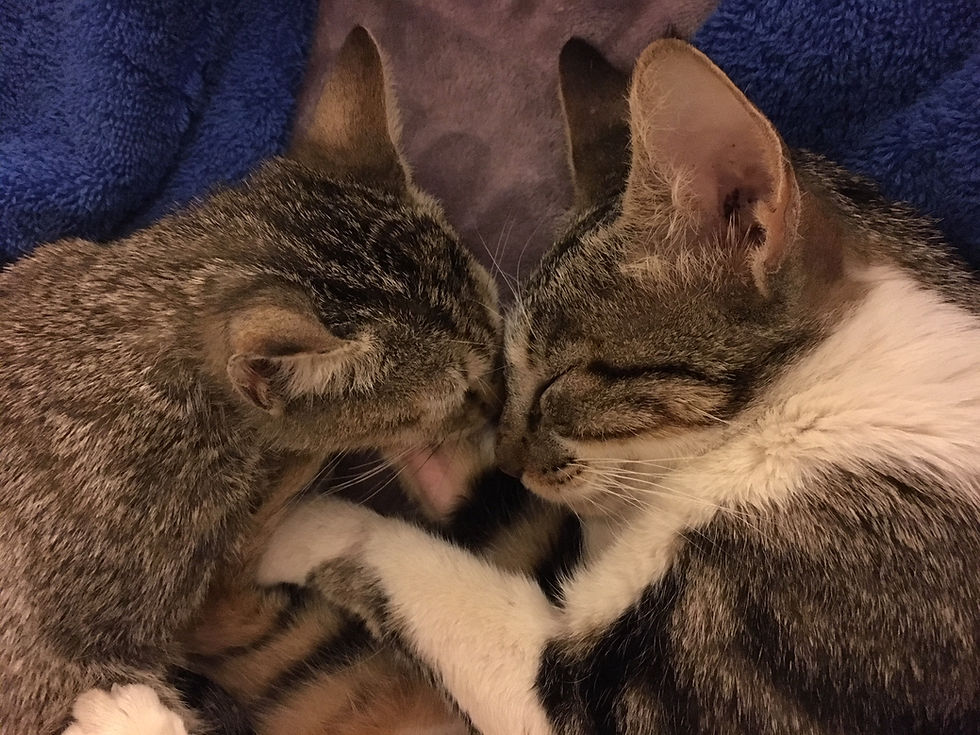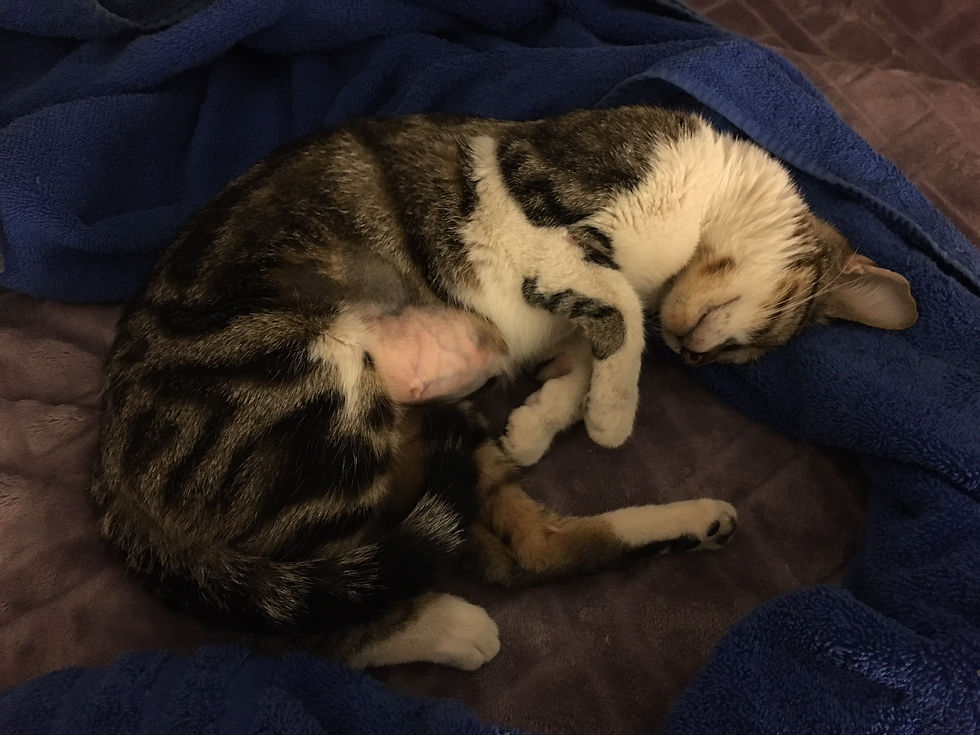This is Why I Help Cats in Honduras
- Animal-Kind International

- May 12, 2018
- 3 min read
As a member of the U.S. military, Leanne was deployed in Honduras. It was one year ago, as of May 5, 2018, that Leanne left Honduras and returned to the US. The kitties she rescued while there are still fresh in her mind, especially kitty Olive (now living at AKI partner, Helping Hands for Hounds of Honduras' sanctuary), who Leanne hopes to bring to the US so that she can give Olive a forever home (photo below: Leanne, while still in Honduras, with Olive).

Starting in November 2016 I began to search for a humane way to address the growing cat population while deployed in Honduras. In January 2017 I was connected with Animal-Kind International and Helping Hands for Hounds of Honduras.
Due to the base ban on handling animals, I spoke with the chaplain and friends who had worked with service animals about how I should approach the situation. Even with the language barrier and cultural differences, with major help from Sherry/Pilar (HHHH director), I was able to help coordinate the vet appointments with Dr. Ordonez (HHHH's vet).
I started a process on base for service members who would help sponsor a cat to get spayed/neutered and vaccinated. I arranged the transport from the base to the vet with a trusted cab driver who gave us a flat rate. This was no easy feat as we were only allowed to leave base with a buddy and we were bringing cats in carriers. (Below are some of the kitties on base, who the service members fed, had vaccinated, and spayed/neutered).



I worked with Pilar to outline the process for adopting a cat and bringing it statewide which requires, among other things, proof of vaccination [vaccinations are required at least two weeks before departure, they need reserved space on the airline, a vet permit, and an export license]. This was a time-intensive process that Pilar completed for us with the Honduran government, then she'd meet us at the airport with the paperwork and assist us through customs.
Overall, with Pilar's generous help, we were able to coordinate the spay, neuter, and vaccination of seven cats and adopt four stateside (Autumn, Kit Lit, Dusty, and TBA-don’t know name). This involved: five cab rides from base to Tegucigalpa-where HHHH and Dr. Ordonez are located ($500 total), vaccinations ($35 per cat), spay ($95 per cat), neuter ($80 per cat), pet airfare ($125 per cat). I was able to secure 20 de-worming vaccinations, wet food, and vitamins, otherwise not available in Honduras, for the vet, Dr. Ordonez, to thank him for his generosity. Before we started the spay/neuter program, sights like the below were common on the base:

My sweet Olive is still in Honduras, at the HHHH sanctuary. Pilar is watching over her since I didn't have enough time to get her papers processed for a US trip prior to my return to the states. Olive had had kittens, but they never made it to Tegucigalpa. I saw her searching for them when she was at the vet's office and it broke my heart. I called Pilar in tears. I still hope to arrange with Pilar to get Olive to the US and bring her home with me. For now, one year later, I still miss Olive but know she is loved and safe and happy with Pilar at the HHHH sanctuary until she can join me. (Pictures below of Olive)



I continue to communicate with Pilar and when I am connected with new rotations [US military service personnel], I help continue the work we started at the base in Honduras in coordination with them.
I hope to volunteer with AKI and continue to help.
More pictures of kitties on the base, cared for by US service members in Honduras:







As needed, service members provide extra care, like for this kitty with an injury on his neck:


Sometimes a dog wandered on base and benefited from the feedings, like this 3-legged dog:


Some kittens born to a kitty on base before we were able to get the mama spayed:

Olive's kitties, who couldn't be captured and brought to Dr. Ordonez's vet office in Tegucigalpa for spay/neuter and vaccination prior to Leanne's departure from Honduras:





